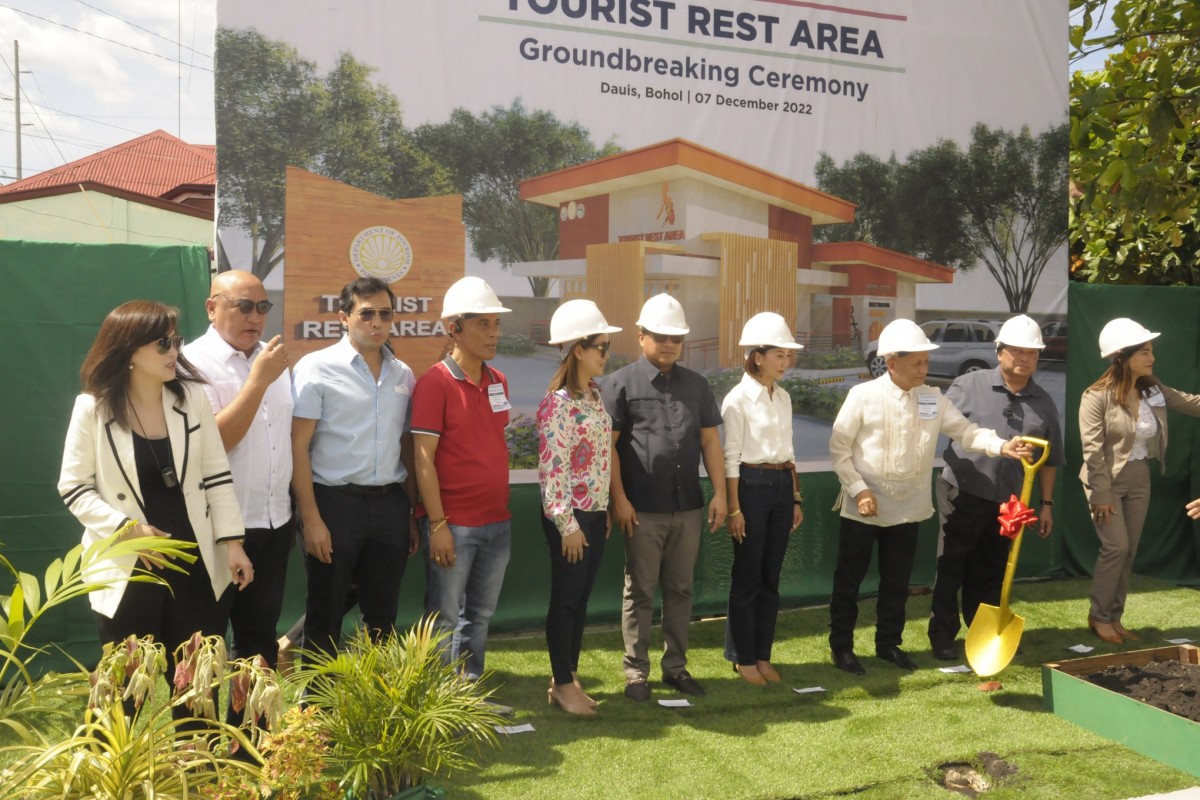TAGBILARAN CITY, Bohol, Dec. 20 (PIA) -- The first of Bohol’s Tourist Rest Area (TRA) would soon rise beside the Dauis Tennis Court in Poblacion Dauis, as Department of Tourism Sec. Christina Garcia-Frasco and Dauis Mayor Roman Bullen signed the memorandum of agreement (MOA) on Dec. 7.
Fransco, who came to Bohol together with officials from its attached agency in the Tourism Infrastructure and Enterprises Zones Authority (TIEZA), said the facility is the first in Bohol for now and assured that more TRAs would be set up here.
TRA is a facility that houses a tourism information center, a pasalubong center and souvenirs, coffee shop, charging stations as well as maintains clean and comfortable restrooms, Frasco said.
Funded by the DOT under TIEZA, the tourism infrastructure arm of the government, the TRA in Bohol is part of the ten TRAs initially set to be constructed within the year.
This as the DOT translates President Ferdinand Marcos Jr.’s vision of making the country a tourism star in the region, Frasco said.
The DOT has already built the same TRAs using local materials in Manolo Fortich in Bukidnon, Samal Island in Davao del Norte, Carmen and Medellin in Cebu, Baguio City, Roxas in Palawan, and soon in Ilocos.
Dauis Mayor Roman Bullen said there is now another reason why tourists would have to stop by the town, because of the TRA.
According to Frasco, the TRA in Dauis is strategic as it is sits midway between Panglao and the tourist destinations in Bohol and would be a convenient stop for tourists visiting the destinations.
TRA is one of the flagship programs of Frasco and is grounded on DOT's vision to provide convenience and comfort to tourists.
Also a translation of the President’s pronouncements during his first State of the Nation Address (SONA) on the need to promote an enhanced Filipino brand, the TRAs adopt the use of local materials and design elements, the DOT chief added.
With the MOA, the local government unit (LGU) would be responsible for maintaining the facility.
On the other hand, the DOT serves as the overall monitor and evaluator of the project as its primary concept originator.
Upon turnover, the LGUs are permitted to lease part of the facilities to the private sector to recover the cost of its upkeep. (RAHC/PIA7 Bohol)




